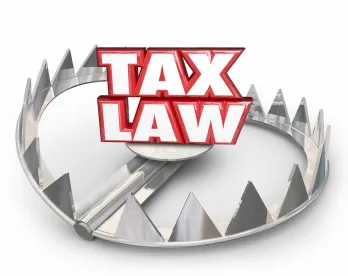The Tax Cut and Jobs Act (TCJA) adopted several new provisions that apply to for-profit businesses. However, the TCJA also cherry-picked certain provisions from the for-profit business tax world and applied them to the nonprofit tax world. One such provision is a 21 percent excise tax on compensation above $1 million as well as on excess parachute payments; this provision was enacted in Section 4960 of the Internal Revenue Code.
Section 4960 imposes a 21 percent excise tax on certain tax-exempt organizations if any of the organization’s salaries for its five highest-paid employees exceeds $1 million. The $1 million threshold includes deferred compensation that vests and is includible in the employee’s income during the taxable year, such as under a Section 457(f) plan. The excise tax is imposed on the tax-exempt organization (not the employee) and equals 21 percent of the covered employee’s taxable compensation for the year that exceeds $1 million.
In addition, those tax-exempt organizations are subject to a 21 percent excise tax on excess parachute payments. An excess parachute payment generally is a payment that is contingent upon the employee’s termination of employment and exceeds three times the employee’s annual compensation. If a payment exceeds this limit and constitutes an excess parachute payment, the excise tax imposed on the tax-exempt organization equals 21 percent of the amount of the payment that exceeds the employee’s annual compensation (not 21 percent of the amount that exceeds three times the employee’s annual compensation).
Because of the cliff-vesting that occurs in traditional Section 457(f) plans, the excise tax can apply to nonprofits even if the nonprofit pays no employee $1 million or more during the year. Further, if the Section 457(f) plan is structured to delay vesting and income inclusion until the employee terminates employment, then it may constitute an excess parachute payment that triggers the excise tax.
Tax-exempt organizations subject to the 21 percent excise tax must file IRS Form 4720 by the 15th day of the fifth month after the end of the taxable year in which the organization is subject to the excise tax. This is the same date by which the tax-exempt organization must file its IRS Form 990 each year.
While this new excise tax seems conceptually simple, it can apply in surprising situations due to the historical differences in taxation of compensation between for-profits and nonprofits. Further, the excise tax increases the cost of compensating an organization’s key employees. Nonprofits should review their existing compensation arrangements, including all deferred compensation plans and employment agreements, to determine whether and the extent to which this new excise tax will apply to their arrangements with their employees, and consider the excise tax when reviewing existing compensation arrangements or adopting new arrangements.





 />i
/>i
